December 21, 2024 | 19:26 GMT +7
December 21, 2024 | 19:26 GMT +7
Hotline: 0913.378.918
December 21, 2024 | 19:26 GMT +7
Hotline: 0913.378.918
Within the framework of the first Vietnam Fruit Festival held in Beijing, China, on the afternoon of September 29, the Department of Quality, Processing and Market Development (Ministry of Agriculture and Rural Development of Vietnam) collaborated with the Department of Trade Promotion (Ministry of Industry and Trade of Vietnam), the Plant Protection Department, and the Vietnam Fruit and Vegetable Association to organize the "Trade and Supply Chain Connection Forum for Vietnam - China Fruit Import and Export".
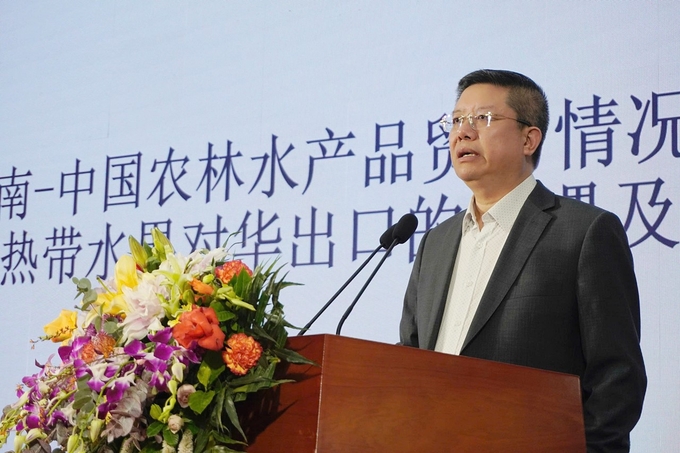
Mr. Le Thanh Hoa, Deputy Director of the Department of Quality, Processing, and Market Development (Ministry of Agriculture and Rural Development), stated that Vietnam currently exports 12 types of fruits to the Chinese market. Photo: Hong Tham.
During the forum, Mr. Le Thanh Hoa shared that the 12 fruits exported from Vietnam to China include durian, mango, banana, passion fruit, longan, lychee, dragon fruit, rambutan, jackfruit, mangosteen, watermelon and coconut.
Among these, durian is the highest-value commodity, with export revenue reaching 2.25 billion USD in 2023. Currently, Vietnam has 611 registered planting area codes eligible for export to China.

Mr. Nguyen Quang Hieu, Deputy Director of the Plant Protection Department (Ministry of Agriculture and Rural Development), advised that businesses need to enhance their responsibility in complying with market regulations. Photo: Hong Tham.
Mr. Co Trieu Hoc, Deputy General Director of the Tan Phat Dia Agricultural Product Distribution Center in the Feng Tai District of Beijing, China, stated that Vietnamese agricultural products are becoming increasingly prominent in the Northern China market. Fruits such as mango, banana, dragon fruit and durian are favored by consumers. Sales in Northern China have been steadily increasing over the years, and Vietnamese agricultural products are improving in quality and meeting food safety standards.
The leadership of Tan Phat Dia noted that in recent years, China has implemented stringent food safety requirements, necessitating even stricter inspection and quarantine standards. Vietnamese agricultural products also need to enhance their quality to meet these demands.
The living standards of the Chinese people are continually improving, along with an increasing demand for high-quality agricultural products. This creates numerous opportunities for Vietnamese agricultural products to expand their market share in China, especially Vietnamese fruits known for their delicious and unique flavors.
Recently, the Ministry of Agriculture and Rural Development of Vietnam and the General Administration of Customs of China signed a protocol for the export of frozen durian and fresh coconuts from Vietnam to the Chinese market.
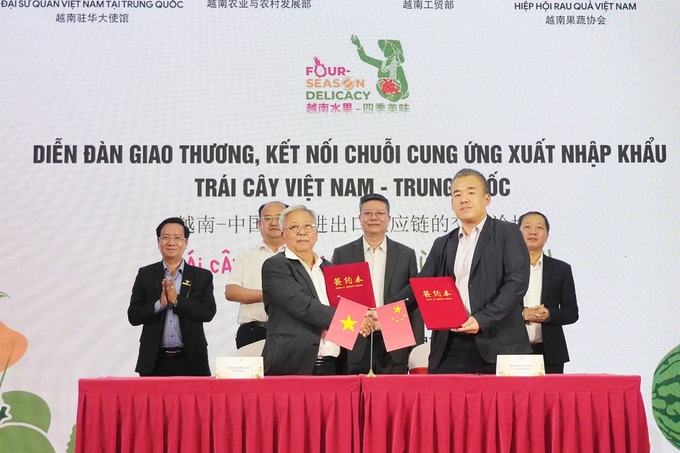
Business cooperation agreement signed between the Vietnam Fruit and Vegetable Association and the China Fruit Association. Photo: Hong Tham.
Mr. Nguyen Quang Hieu, Deputy Director of the Plant Protection Department (Ministry of Agriculture and Rural Development), stated that after signing the agreement, Vietnam is implementing the protocol by developing and issuing guidelines for assessing planting areas and packaging facilities. This includes evaluating compliance with the phytosanitary and food safety regulations outlined in the protocol.
The activities involve organizing conferences to disseminate the protocol's regulations, conducting training courses to guide technical requirements ensuring that planting areas and packaging facilities meet the protocol's standards, developing training materials and manuals for implementing the protocol's contents.
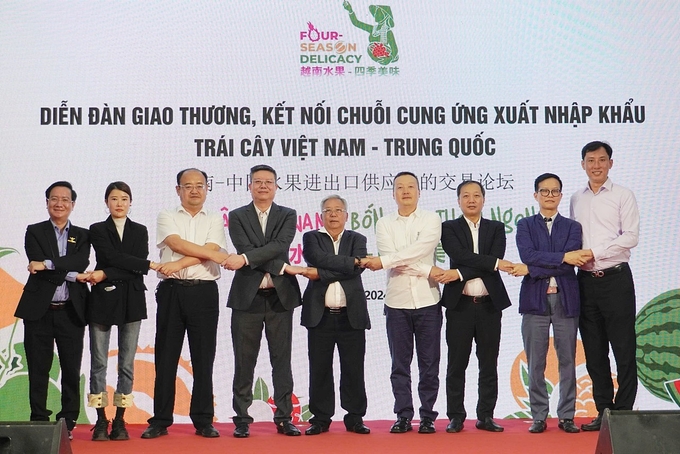
The forum was held as part of the first Vietnam Fruit Festival in Beijing, China. Photo: Hong Tham.
Mr. Vo Quan Huy, Director of Huy Long An - My Binh Co., Ltd., proposed that the protocol for pomelo should be considered and promoted, as it is one of the fruits with significant potential in Vietnam. Mr. Huy believes that the export value of pomelo could quickly surpass that of dragon fruit if the market for this product is opened.
Mr. Nguyen Dinh Tung, General Director of Vina T&T Group Import-Export Company, expressed concerns that some protocols take many years to finalize, but certain units and enterprises negatively impact others by failing to meet export standards, which affects reputable entities. “How can we protect the national brand for Vietnamese fruits in particular and Vietnamese agricultural products in general?” Mr. Tung asked.
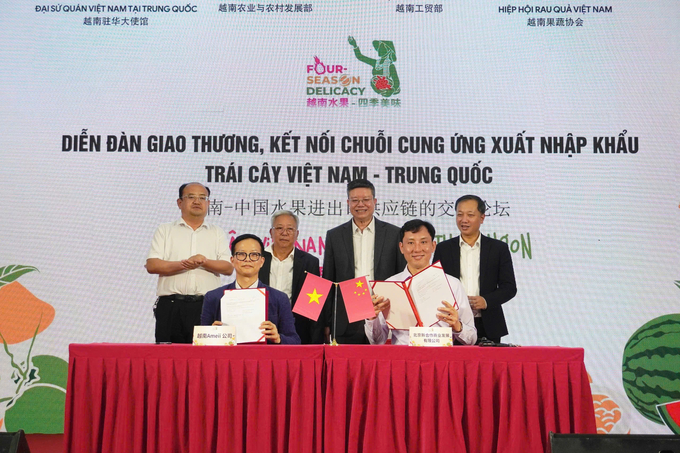
The business cooperation agreement was signed between Ameii Vietnam Joint Stock Company and Beijing Tan Hop Tac Development Company. Beijing Tan Hop Tac Development Company is a member of the Cung Tieu Group, which has 1.400 stores and an underground store system. Photo: Hong Tham.
In response to this issue, Deputy Director Nguyen Quang Hieu said that the Plant Protection Department has recently intensified training sessions, incorporating content on compliance with market regulations and the consequences of non-compliance. When a business violates these regulations, countries will issue warnings and violations will be recorded on a national level.
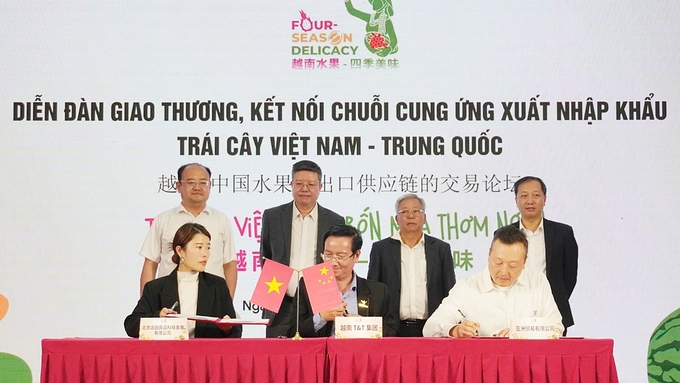
The business cooperation agreements were signed between Vina T&T Group Import-Export Company and Beijing Vandiang Science and Technology Development Co., Ltd., as well as Asian Trade Interface Co., Ltd. Photo: Hong Tham.
Therefore, Mr. Hieu advised that businesses need to enhance their responsibility in complying with regulations, as failure to do so can lead to consequences for the entire industry, affecting the reputation of legitimate businesses and the country's credibility. Additionally, it will impact the competitiveness of products in various markets.
At the forum, a signing ceremony for business cooperation took place between Vietnamese and Chinese units and enterprises to promote the export of agricultural and seafood products. Specifically, there were four agreements signed, namely between Ameii Vietnam Joint Stock Company and Beijing Tan Hop Tac Development Company; the Vietnam Fruit and Vegetable Association and the China Fruit Association; Vina T&T Group Import-Export Company and Beijing Vandiang Science and Technology Development Co., Ltd.; and Vina T&T Group Import-Export Company and Asia Trading Co., Ltd.
Asia Trading Co., Ltd. has an office and headquarters located at the Beijing wholesale market (Xintiantian). This unit is a reputable distributor of fresh fruits with a significant quantity in China. According to preliminary statistics, within just three months, this unit imported 100 containers of various fruits from Vietnam to China. It is known that Asia Trading Co., Ltd. is interested in purchasing Vietnamese fruits such as dragon fruit, coconut, durian and mango. Additionally, this unit wishes to buy frozen durian when there are official export documents and to import pomelo into China under official export procedures. Regarding the agreement for purchasing goods with Vina T&T Group Import-Export Company or consigning goods for sale at the market, prices will be announced according to the market rates.
Beijing Tan Hop Tac Development Company is a member of the Cung Tieu Group with 1.400 stores and an underground store system. Furthermore, the Group also provides meals for schools and agencies in Beijing.
Translated by Phuong Linh
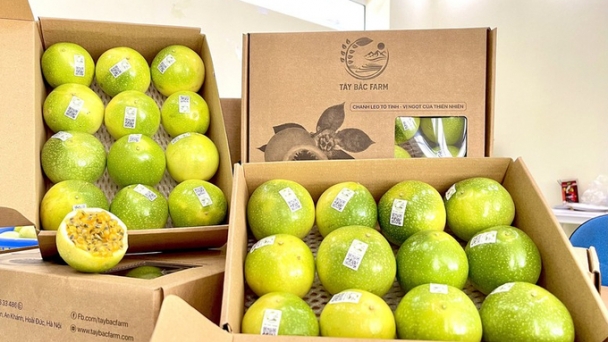
(VAN) According to information from the Plant Protection Department (Ministry of Agriculture and Rural Development), Vietnam and the United States are negotiating plant quarantine measures for fresh passion fruit.
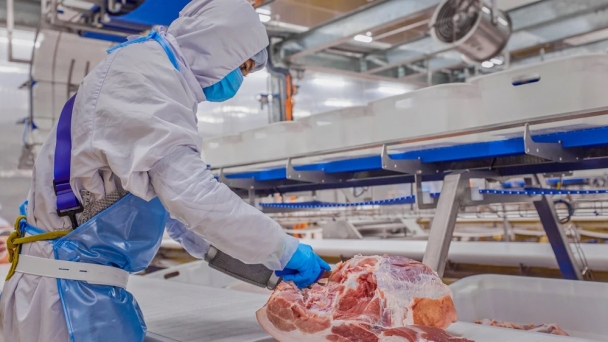
(VAN) Vietnam's livestock industry is still grappling with the challenge of limited export potential, in addition to its accomplishments.
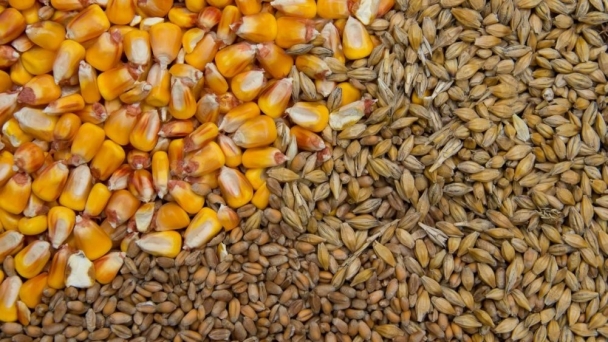
(VAN) In its first forecast for the 2025 EU-27+UK grain crop, COCERAL foresees a 7% increase in production over the previous year.
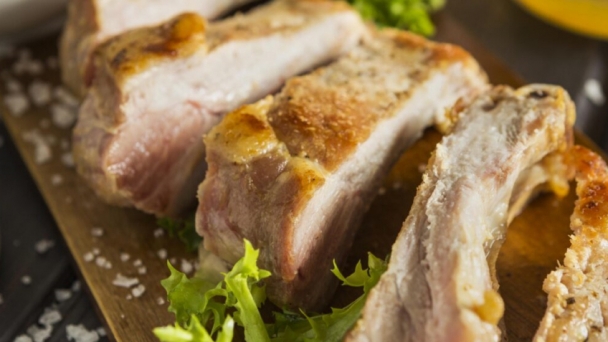
(VAN) For the first time, the Philippines has become the leading destination for Brazilian pork exports surpassing China, the main destination since 2018. Before that, Russia lead this ranking for over a decade.
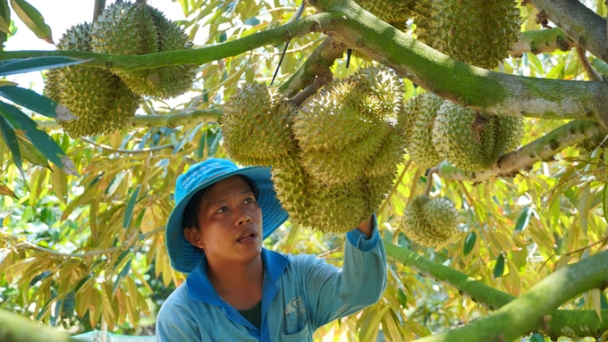
(VAN) In 11 months, fruit and vegetable exports to China reached more than USD 4.3 billion (VND 108,000 billion), up 28% over the same period in 2023, the highest ever.
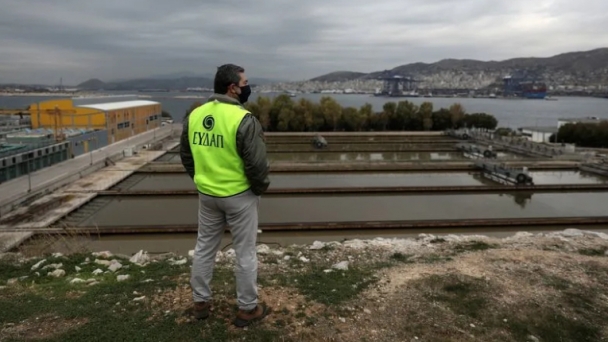
(VAN) It's a version of a much-discussed process to capitalize on some rocks' natural tendency to capture CO2.
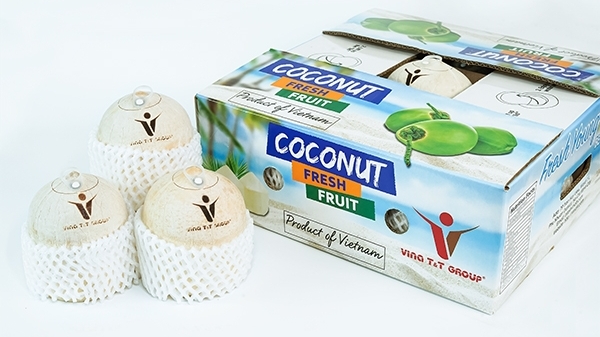
(VAN) Vina T&T Group's representative recently emphasized the opportunities and challenges that Vietnam's coconut industry is encountering as it strives to capitalize on the lucrative Chinese market.